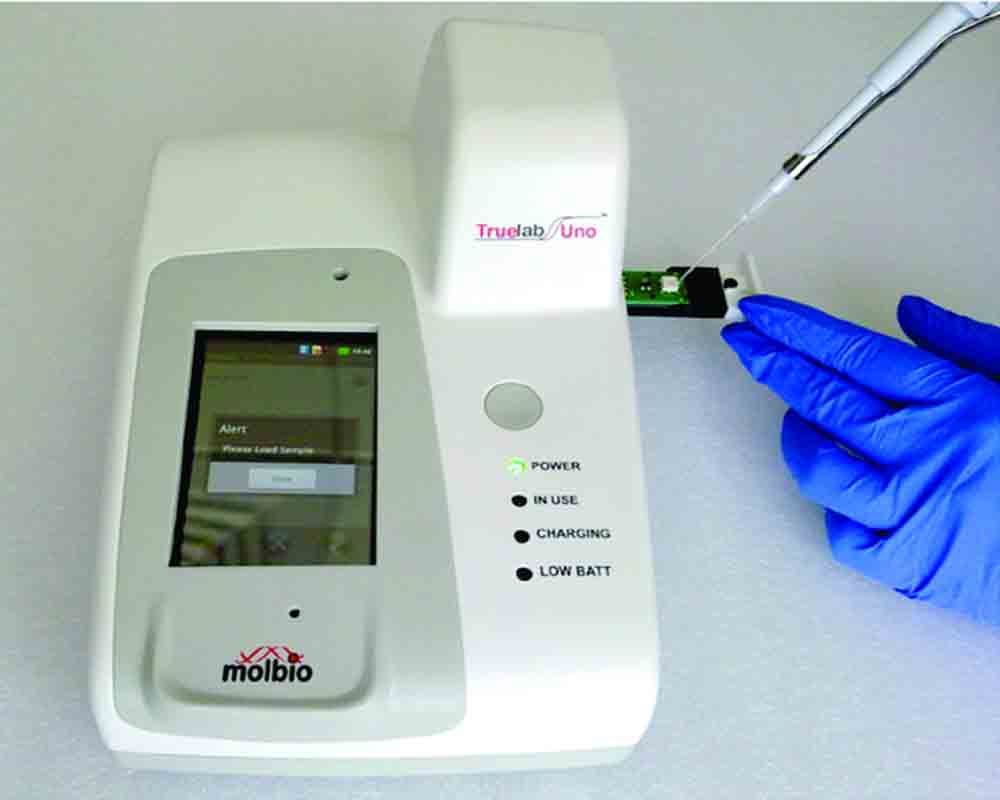TrueNat is a molecular test that replaces sputum microscopy for TB diagnosis. It is fast and accurate and will help in early detection and treatment
The latest country report on Tuberculosis (TB) indicates that in India, women account for 39.1% of the total cases notified. But missing from these figures are the hundreds of women who remain undetected and uncounted.
Why do women report fewer cases of TB than men? The lack of agency, poorer access to healthcare services, household responsibilities and the stigma associated with TB prevent women from coming forward to seek treatment. They are often reluctant to reveal they might have TB due to potential rejection from their families. Women also delay seeking care because they are hesitant to use family resources, often meagre. They wait until they are severely ill. By then, it is often fatal.
It is not just their lives that are on the line. There is a sixfold increase in perinatal deaths and a two-fold risk of premature birth and low birth weight babies of mothers with active TB. Women living with HIV and TB face a double whammy as their unborn child faces twice the risk of vertical transmission of HIV, according to the World Health Organisation.
All this can be prevented with proper treatment. Data shows that 85% of people recover from TB if treated. However, treatment can only begin when there is a proper diagnosis. An early and accurate diagnosis is key to reducing not just deaths but TB-related life-changing impairment.
This is where TrueNat, a new molecular test that replaces the traditional sputum microscopy to diagnose TB, is making a difference. Not only does it enable rapid and accurate diagnosis, it can be taken to the doorstep thanks to its innovative portable technology. So, reaching out to a larger population, particularly vulnerable and marginalised women, is possible. Importantly, correct treatment can begin at the first point of contact on the same day.
Developed in India by the Goa-based Molbio Diagnostic, TrueNat also tests for resistance to the drug Rifampicin in approximately 90 minutes. Endorsed and included in the WHO Global TB Programme for its “high diagnostic accuracy”, the Nucleic Acid Amplification Test (NAAT) using TrueNat can be conducted in facilities without an air-conditioned lab and in remote centres plagued by power outages as it runs on solar powered battery. Used in tandem with a portable digital X-ray machine, also battery operated, it can save more lives.
That it is possible to fully transition from sputum microscopy to rapid molecular diagnosis, as has been recommended by WHO, has been shown by Goa. It is the first state in India to achieve this significant milestone. This shift has led to higher testing, early diagnosis, and boosted chances of recovery.
TB being a contagious disease, one of the places where early and accurate diagnosis is direly needed is in prisons. A Lancet study has shown that prisoners in India are five times more at risk of developing TB than the general population. Consider then the danger of TB infection faced by women prisoners housed in overcrowded jails. The number of women jailed by the end of 2021 was 22,918 but the capacity of the existing 32 women’s jails is 6767, according to the latest National Crime Records Bureau report.
In fact, only 18% of female prisoners get exclusive women’s prison facilities, states the Justice Amitava Roy Committee report on prison reforms. Appointed by the Supreme Court, the committee, which presented its report earlier this year, said “Women in incarceration suffer the brunt of imprisonment far worse than their male counterparts, especially with regard to access to basic facilities, medical care and medical staff.” This huge breakthrough means a decrease in price and increased accessibility.
(Swapna Majumdar is a journalist writing on development and gender. The views expressed are personal)

























